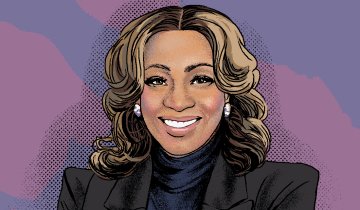The American Educational Research Association (AERA) has named USC Rossier Professor Julie Slayton as chair-designate of the AERA Ethics Committee. Slayton brings extensive expertise and a strong commitment to ethics in education research. As chair-designate, she will play a key role in upholding and advancing the ethical standards that guide education researchers across the country.
A three-year appointment as chair-designate, Slayton will serve a leadership role, helping to promote ethical conduct among education researchers and guiding the work of the Ethics Committee. The committee’s work includes reviewing the AERA Code of Ethics, providing advice to members on ethical dilemmas and fostering awareness of ethical considerations within the profession.
“As educational researchers and members of the AERA community, it is our responsibility to engage in ethical conduct and attend to professional practices of the highest integrity,” said Slayton. “I look forward to working closely with the Committee to ensure that we continue to foster a culture of integrity and accountability within our profession.”
Dedicated to promoting the highest standards of ethical conduct among education researchers, the AERA Ethics Committee plays a key role in advancing ethics education and fostering ethical awareness across all levels of the profession. Its policies and procedures, approved by the AERA Council, outline the areas in which the Committee is authorized to take action.
“Julie’s appointment to the AERA Ethics Committee is a powerful step forward in reinforcing the importance of ethics in education research and is a reflection of her stature in the field,” said USC Rossier Dean Pedro Noguera. “Her leadership will ensure that the field remains focused on promoting integrity and upholding the values that are fundamental to our profession.”






